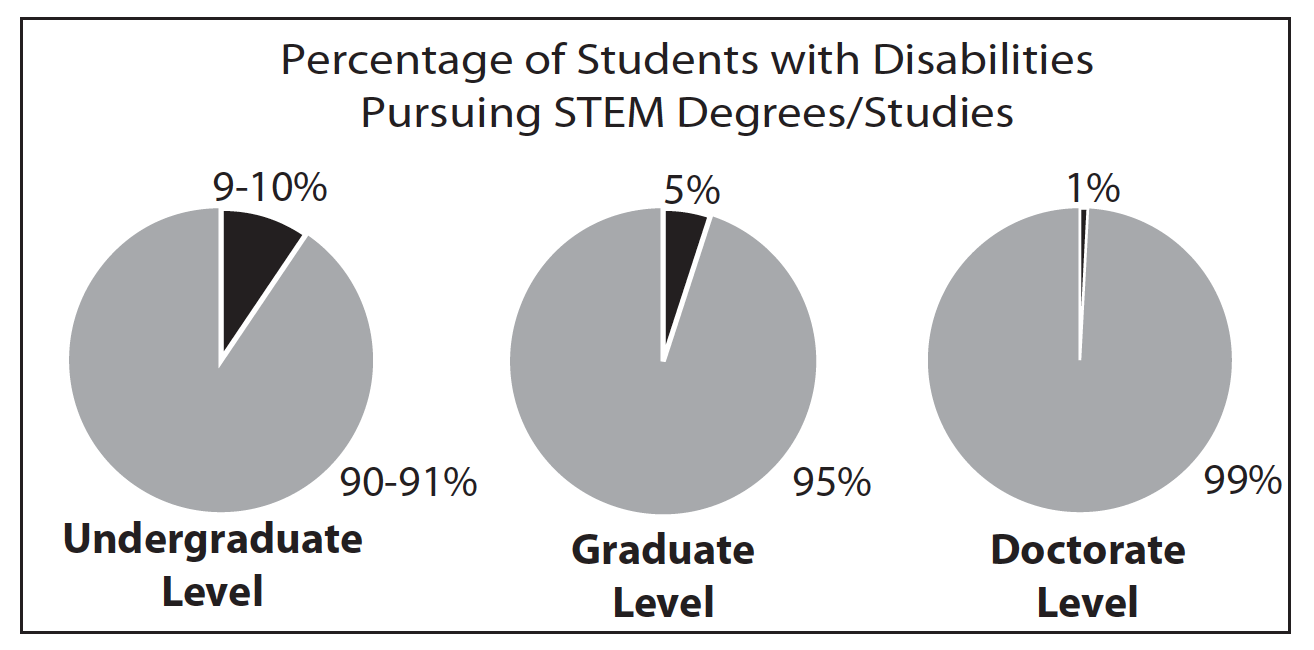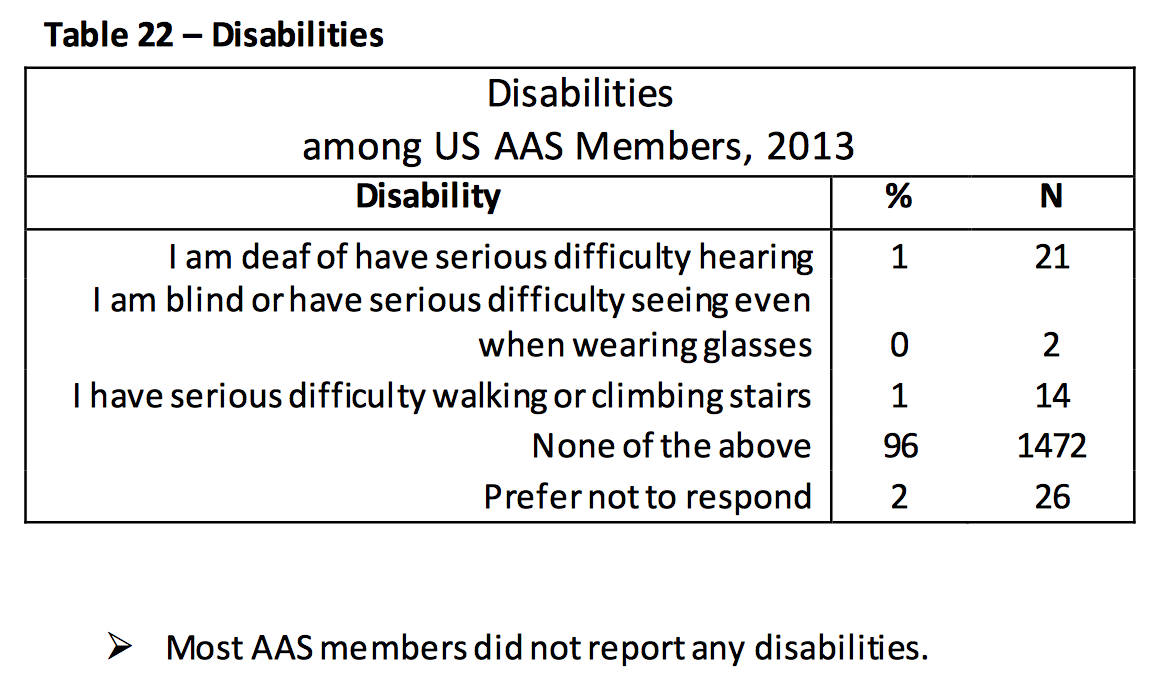WGAD
In 2015, a group of astronomers at Inclusive Astronomy meeting got together and began drafting a proposal to create a Working Group on Accessibility and Disability (WGAD). The proposal was submitted to the AAS in November of 2015 and the group was accepted by the council and officially formed by the Society in January of 2016.
In a survey of the AAS membership in 2013, 2% of the membership reported having a disability including mobility or hearing limitations. An equal fraction preferred to not respond to the question. While these respondents had reasons we cannot discern for non-response, we must recognize that disability is stigmatized in our society and that likely prevents many from disclosing. This is troubling for many reasons, not the least of which is that non-disclosure could then prevent access to resources.
WGAD's charge is to identify and then eliminate barriers to access that exclude astronomers with disabilities from engaging with astronomy. WGAD recognizes the complex identities of astronomers include more than just where we are along the axis of ability, and aims to work in an intersectional manner, addressing how ableism and racism, sexism, classism, and heteronormativity can compound and build higher barriers to access. In a multi-faceted approach, WGAD aims to raise awareness of disability history, the prevalence of ableism, and to prevent erasure. We are also working to promote accessibility across all platforms used to engage with astronomy: presentations, publications, websites, and software, for a few examples.
For further information, our proposal to form WGAD can be found here. Contact information for the coordinating committee members can be found here.

